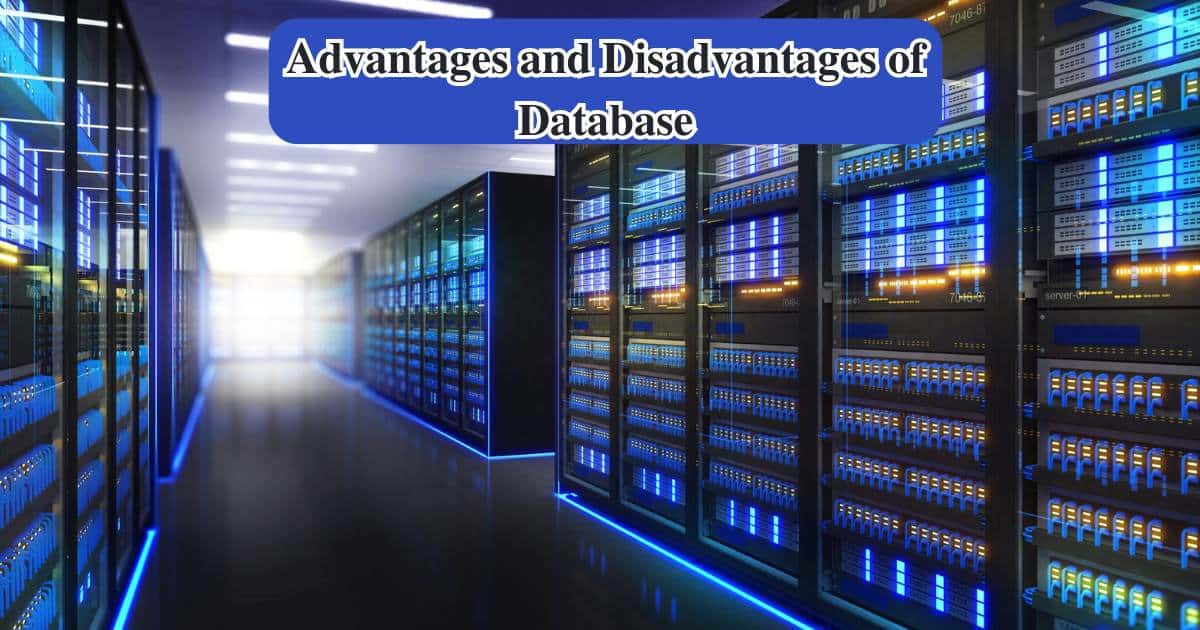In our digital-first world, the ability to swiftly tap into a sea of information with just a click or a tap is no less than magic.
At the heart of this digital wizardry lies an unsung hero: the database. From powering the apps on your phone to managing the critical data of Fortune 500 companies, databases are the backbone of modern technology.
But like everything in the tech world, it come with their own set of pros and cons.
This blog post dives deep into the advantages and disadvantages of database management systems (DBMS), especially focusing on the needs and concerns of a U.S. audience.
Advantages of Database
Databases serve as pivotal tools in managing and organizing vast amounts of information, offering significant advantages like improved data security, efficiency, and accessibility.
They enable easy manipulation and sharing of data, facilitating informed decision-making and operational effectiveness.
Let’s explore the key benefits that make databases indispensable in today’s digital landscape.
Data Abstraction
Data abstraction is a fundamental advantage of using databases. It’s about making complex systems user-friendly by hiding the underlying complexity from the end user.
Imagine driving a car without needing to know the intricate workings of its engine—that’s abstraction.
In the realm of databases, this means users can interact with data through simple queries without worrying about where or how the data is stored.
Controlling Data Redundancy
Databases excel at minimizing unnecessary duplication of data, known as redundancy. By centralizing data storage, databases ensure a single source of truth.
This not only saves valuable storage space but also significantly enhances the speed of data retrieval and update operations.
Think of it as having a single, well-organized library catalog as opposed to multiple, conflicting ones.
Minimized Data Inconsistency
Closely linked to controlling redundancy is the reduction of data inconsistency. When data is scattered across multiple locations, discrepancies are bound to occur.
Databases mitigate this by ensuring that any update made to a data item is immediately reflected across the entire system, thereby keeping data consistent and reliable.
Data Manipulation Easily
The centralized nature of databases makes data manipulation—whether it’s inserting, updating, or deleting data—a breeze.
This flexibility is crucial for businesses that need to adapt quickly to market changes.
It allow for these manipulations to be done efficiently, ensuring that data remains dynamic and relevant.
Data Can Be Shared
They are designed for sharing, enabling multiple applications to access and utilize the same data pool.
This interoperability is key in today’s interconnected world, where data needs to flow seamlessly between different systems and services.
Data Security

In an era where data breaches can spell disaster for companies, the importance of data security cannot be overstated.
They provide robust security features, including access controls and authentication mechanisms, to protect sensitive information from unauthorized access.
Support Multi-users Views
They are inherently multi-user systems, allowing multiple users to interact with the data simultaneously without interfering with each other.
This capability is essential for collaborative environments where team members need concurrent access to data resources.
Concurrent Access
Beyond supporting multiple users, It ensure that these users can access and work with data concurrently in a smooth and efficient manner.
This is crucial for maintaining productivity in fast-paced business settings.
Helps for Decision Making
At its core, a database is a decision-support tool. By organizing data in a structured, accessible manner, it provide businesses with the information needed to make informed decisions.
Better data leads to better decisions, which in turn leads to better business outcomes.
Disadvantages of DBMS
Despite their numerous benefits, they aren’t without drawbacks, including high setup costs, complexity, and potential performance bottlenecks as data and user numbers increase.
This overview will shed light on the challenges and considerations that come with deploying and managing database systems (DBMS).
High Initial Costs
The elephant in the room when discussing the adoption of database systems is the cost. Setting up a robust database system involves significant investment in hardware, software, and infrastructure.
For small businesses or startups, this initial outlay can be a steep hurdle.
Complexity and Training Needs
They are complex beasts. Managing a database system requires specialized knowledge and skills, necessitating comprehensive training for staff.
This complexity can translate into additional costs and time delays.
Potential Performance Issues
As they grow in size and complexity, they can start to show signs of strain.
Performance issues, such as slower query responses and longer load times, can become a challenge, especially for systems not designed with scalability in mind.
System Dependence and Scalability Concerns
Organizations often find themselves tied to a specific database system, making it difficult to switch to another system without incurring substantial costs and disruptions.
Scaling a database to accommodate growth—while maintaining performance and security—can be a daunting task.
Final Thoughts
In conclusion, databases are indispensable tools in the information age, offering a myriad of benefits such as improved data management, security, and decision-making capabilities.
They also bring challenges like high costs, complexity, and scalability issues. Whether the advantages outweigh the disadvantages depends on the specific needs, size, and resources of the organization.
By carefully considering these factors, businesses can make informed decisions about implementing and managing database systems (DBMS).











